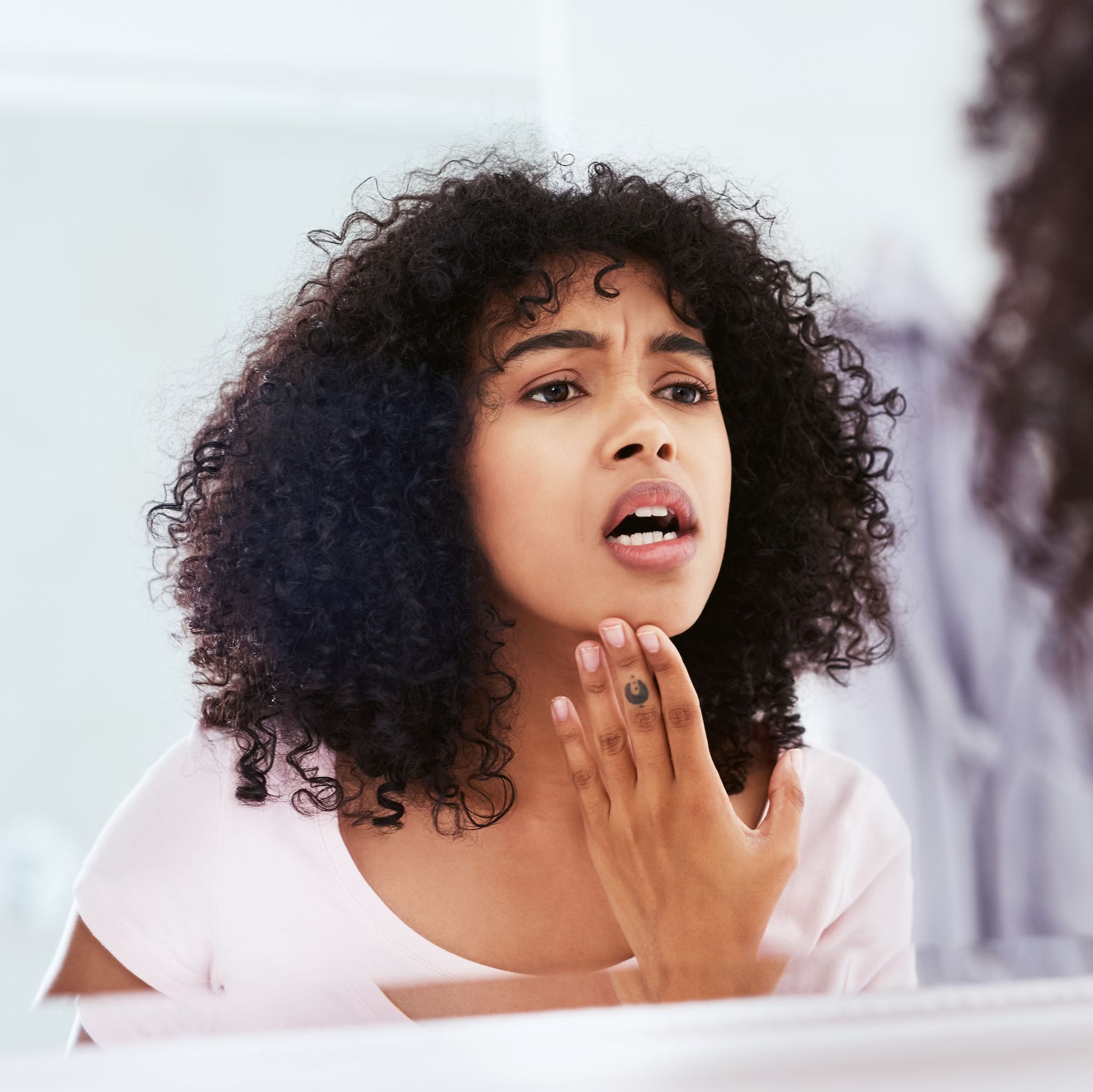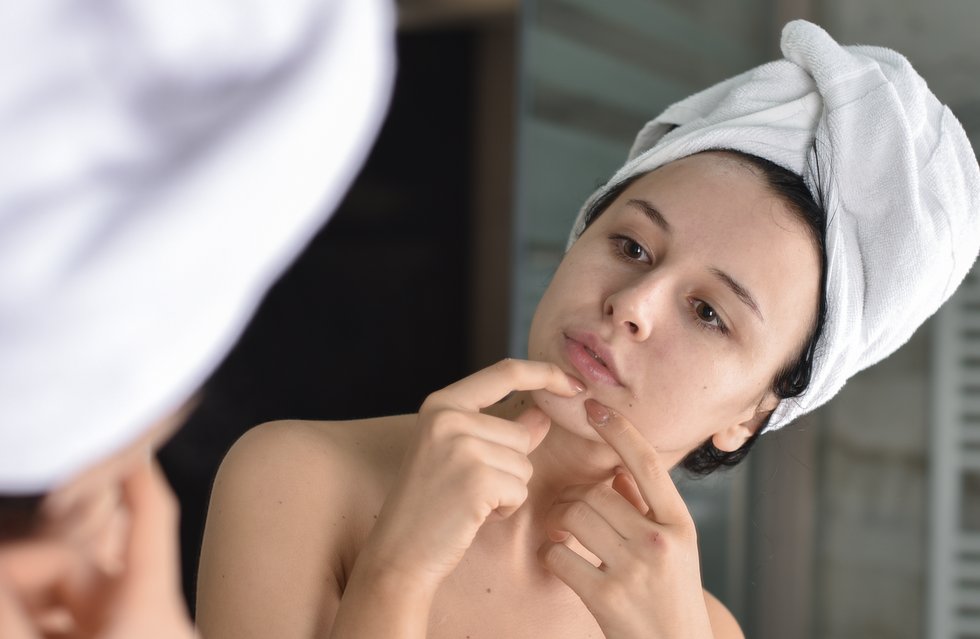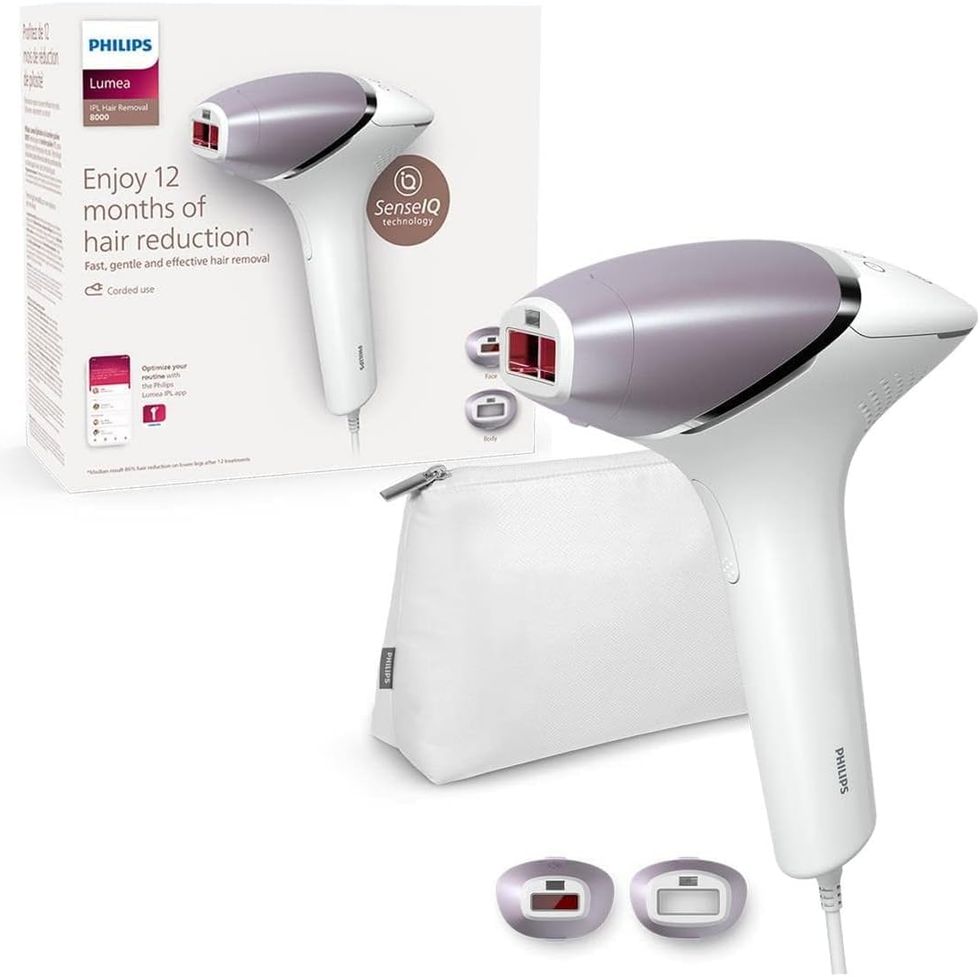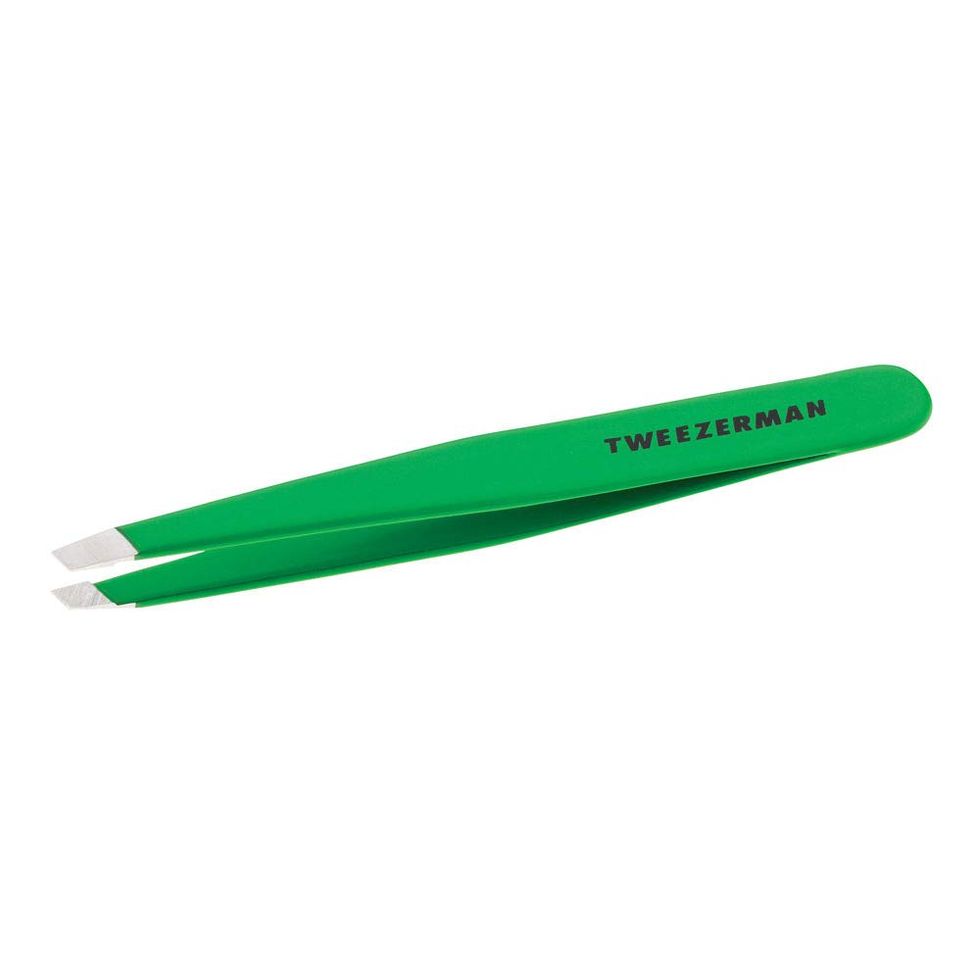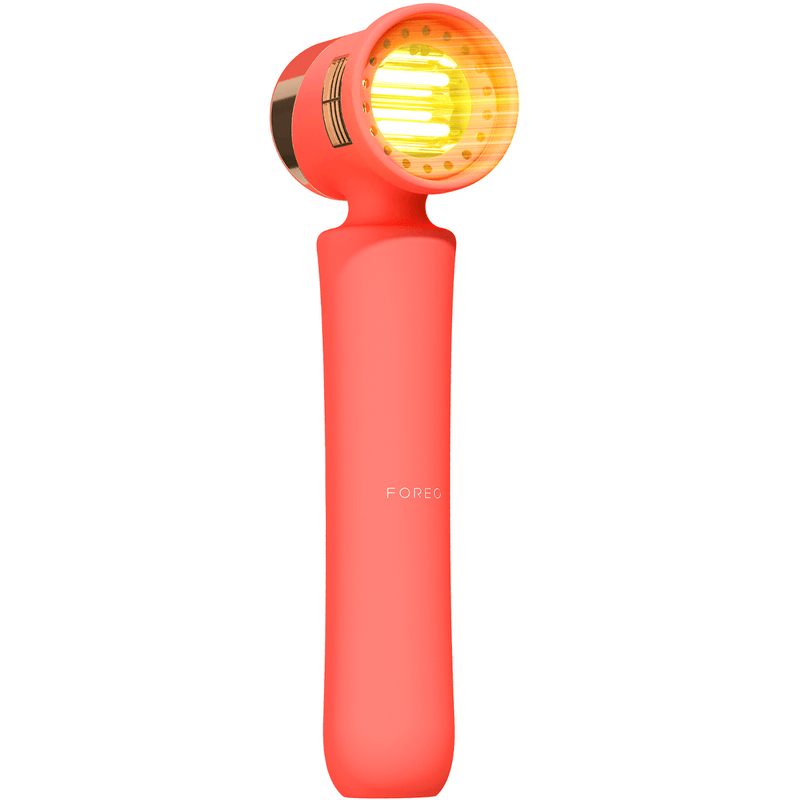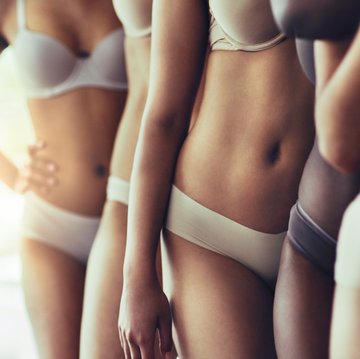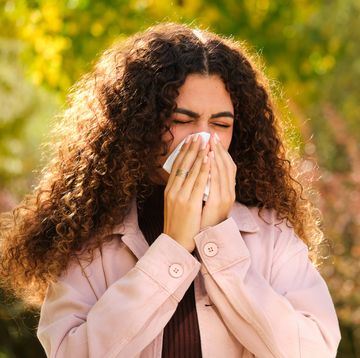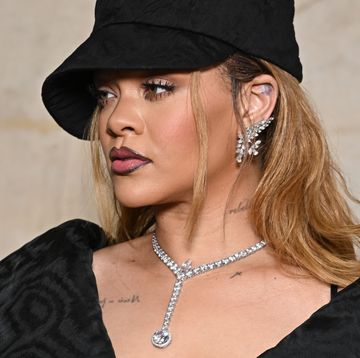Ah, chin hair. We'd be lying if we said we've never spotted one on our own faces. Picture the scene: you're stood in front of the mirror, applying some lippy... and there it is, a small strand waving from your chin.
If you’ve spotted (and swiftly plucked) the odd hair sprouting from your neck or chin area, you probably haven’t thought much of it. Most people will grow the occasional unexpected strand in all kinds of areas on their body without it becoming a major cause for concern. And to be honest, it’s totally normal.
But there could be more to that rogue chin hair that meets the eye. If you’ve noticed excessive or repeated growth of facial hair, or are wondering what on earth is going on with that one stubborn thread that can’t be beaten by your tweezers, there are a number of possibilities to consider.
Cosmopolitan UK spoke to Elizabeth May, an expert from the Private Skin Laser Clinic in Hampstead to take us through all the possible explanations. From uncontrollable factors like (even though you hate to admit it) getting older to a potential PCOS diagnosis, hopefully, her expertise on the matter will give you all the answers you're looking for...
What is hirsutism?
"Excessive dark, thick, coarse, hair growth in females, which appears in a male pattern, is referred to as hirsutism. This can involve single or multiple areas, such as moustache and chin area, chest, lower abdomen, back and inner thighs," May says.
Why do women get chin hair?
But in terms of why excessive hair growth happens, May explains that "hirsutism is generally caused by a hormone imbalance."
"That is, an increase in production in the male hormones called androgens, or an increase in skin sensitivity to androgen," she adds.
So, if you are worried about your chin hair, or just want to know what’s causing yours, here’s what could be going on behind the scenes…
You have PCOS
PCOS, or Polycystic Ovarian Syndrome, is a condition that affects how your ovaries work, explains May. It's more common than you may think, affecting around 8-13% of menstruating women - with up to 70% of sufferers thought to be undiagnosed worldwide. Symptoms include irregular periods, weight gain, adult acne, and fertility problems, alongside excessive hair growth - which, of course, can include chin hair.
If you’re suffering from one or more of these signs and you’re concerned, she encourages you to speak to your doctor about your options. There’s no ‘cure’ for PCOS, as such, but there are treatments that can help to manage the condition, ranging from lifestyle changes all the way through to surgery.
You have Cushing’s syndrome
May also notes the possibility of Cushing’s syndrome. It’s far less common than PCOS, affecting an estimated 1 in every 50,000 people, but women are three times more likely to develop it.
What is Cushing’s syndrome, we hear you ask? Well, it's a syndrome caused by high levels of the cortisol hormone. In addition to facial hair, it can cause weight gain, stretch marks, skin that bruises easily, and muscle or bone weakness, as well as – you’ve guessed it – chin hair. It can occur as a side effect of taking certain medications, or more rarely, because of a tumour developing inside a gland. This needs managing with appropriate advice from a medical professional. If you are uncertain or worried about Cushing's syndrome, it's best to consult your doctor.
You’re getting older
While hormone imbalances and syndromes can be responsible for hair growth in some women, for others, it’s simply a sign of ageing. "There is a natural tendency to get hairier with age, especially post-menopausal," confirms May.
In this instance, your chin hair could just be a fact of life, but it can be worth consulting with your GP to make sure that there’s nothing more serious going on without you realising it.
Your weight has changed
If your increase in chin hair production has coincided with a noticeable weight gain or weight loss, the two could be related. "Obesity upsets the balance of male and female hormones," details May. And as we’ve already learned, your hormones can have a major impact on hair growth.
At the opposite end of the spectrum, she adds, extreme weight loss can cause an increase in fine hairs, like those usually seen in children. This is known as lanugo, and can be an indicator of anorexia, a disorder for which you should always seek the support of an expert.
Your medication is affecting you
It’s rare, says May, but certain medications can cause an increase in chin hair growth. Like? "Some chemotherapy drugs for cancer, and some medicines for epilepsy," she explains.
"Plus, anabolic steroids used illegally in sport and sold in some gyms may increase facial hair if used by women," she continues. These are class C drugs, and should only be sold by pharmacists with a prescription; if you’re using them without guidance, facial hair may be just one of a range of very serious side effects, from aggressive behaviour and mood swings to blood clots and increased risk of heart attack or stroke.
You’re predisposed to hair growth
"Hirsutism is not hereditary but can be more common in some ethnic groups," outlines May. Specifically, it occurs more commonly in women of Mediterranean or Middle-Eastern origin, she adds. "However, in the general population, 10% of Caucasian women will experience it too."
How do I get rid of chin hair?
Firstly, it's a personal decision as to whether or not you want to get rid of your chip hair, but if it is something you've decided you'd like to do – listen up! "Treatments available for removal of facial hair are varied with markedly different results," May admits. "Physical removal, such as shaving, plucking, waxing, bleaching and hair removal creams, is common and inexpensive but can sometimes irritate the skin."
Similar (but not the same as) upper lip hair removal options, you have to be more careful with treating your face hair as your skin is more sensitive.
"Medications that have an anti-androgenic action can be used if a hormonal cause is diagnosed," explains May. But, do note here: these are only available on prescription, and range from oral contraceptives to spironolactone.
"Electrolysis is often suggested if the hair is grey, blonde, or ginger in colour," she continues. But, again, there are side effects, and it can sometimes cause inflammation and scarring.
The most effective treatment? "If the hair is coarse and dark, laser is the most effective treatment, inducing a gradual decrease in hair growth, resulting in finer, lighter hair on the face," May concludes.
So there you have it — your complete guide to the causes of chin hair. Plus, your guide to the best removal methods. Remember, female chin hair is fairly normal, but if it is bothering you, booking an appointment to see a specialist can't do any harm.
This article is not intended to be a substitute for professional medical advice or diagnosis. Always seek the advice of your physician or other qualified health provider with any questions you may have regarding a medical condition.
